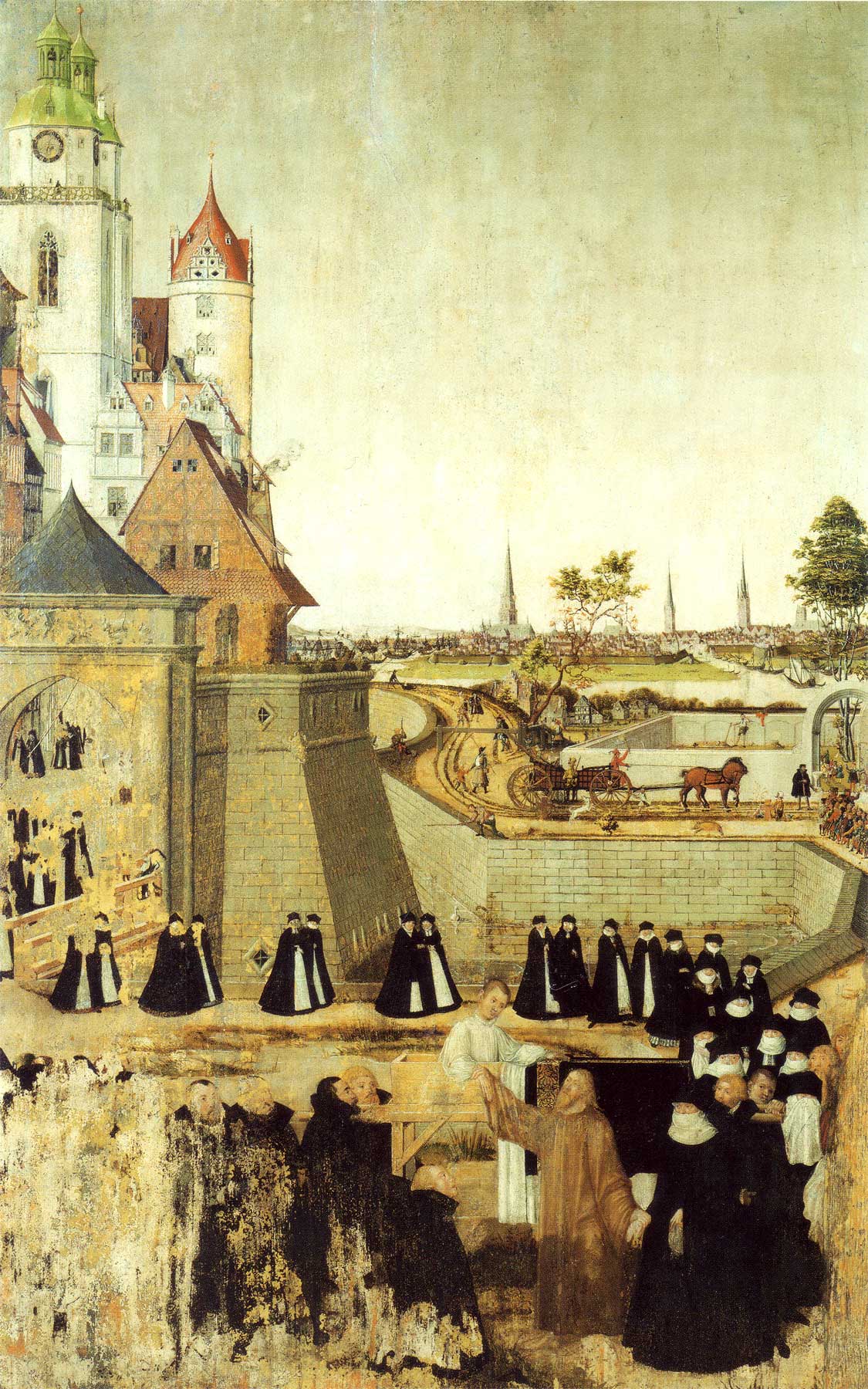Life-Giving Encounter
Reflections on the Readings for the Tenth Sunday in Ordinary Time, Year C.
The tiny Galilean village of Nain is only remembered because of the miracle that Jesus works there in today’s Gospel. Jesus has just left the better-known town of Capernaum, where he worked a miracle for a very important Roman soldier – a centurion who was so respected by the Jewish elders that they said, “He deserves to have you do this for him” (Luke 7:4). Nobody asked Jesus to go to Nain to raise the widow’s son. The upper echelon and the poor alike were uninterested in advocating for her, even though the death of her son meant the loss of her entire livelihood, whereas the illness of the centurion’s servant was merely an inconvenience. Instead, it was Jesus’ compassion that drew him through the city gates, toward that funeral procession. It was the sacred heart of Jesus, which is always for the poor, that overflowed with love and said very gently to the woman, “Don’t cry.” And from Jesus’ flows not only love, but also power. With a simple touch and a brief command, Jesus raises the widow’s son from the dead. Then he does something tender, simple, and powerful: He hands the man back to his mother. If I were a parent who had lost a child, I think I would return to this passage over and over again and meditate on it. Someday soon, Jesus himself will hand back to us all of those whom we lost to death, and they will be whole and alive again.

When Jesus comes to us, he brings life. This is the simple message of the Gospel. The woman in the first reading has an acute sense of her own sin. When her son stops breathing, she yells at Elijah, “Have you come to me to call attention to my guilt and to kill my son?” The holiness of God is too much for sinful humanity, and when the two come in contact, death results. But Elijah stretches himself over the child, making himself a mediator of God’s life-giving presence, and cries out three times, “O LORD, my God, let the life breath return to the body of this child.” Then the boy receives back his life.
In our sinful state, the coming of God into our lives merits death. Nothing unclean can enter into the presence of God (Revelation 2:27). But when Jesus stretches himself out on the cross, like Elijah stretching himself over the boy, we are given new life by his merits. He is able to mediate God’s new life to our weak and sinful humanity. The fullness of God’s presence is mediated to us through Jesus’ humanity, and, therefore, through the Church and her sacraments.
Jesus comes to us when we mourn over our own sins and weep over the sad state of the world. And when Jesus comes, he brings life. “Blessed are they who mourn, for they will be comforted” (Matthew 5:4). He can’t help but be drawn to us, just as he was drawn through the gates of Nain toward the poor widow and her dead son. Likewise, the resurrected Jesus came to St. Paul, who was hell bent on killing Christians and destroying the Church. He gives him new life and new purpose through the Gospel.
Jesus comes to us with compassion and power through baptism, confirmation, and the Eucharist. His healing power restores us in the sacrament of reconciliation. Each encounter with Jesus brings the possibility of hope and revitalization into our lives. Of course, it also brings the possibility of death: “For anyone who eats and drinks without discerning the body, eats and drinks judgment on himself” (1 Corinthians 11:27-29).
If we take Jesus’ presence for granted – if we do not “discern the body” – then we are in mortal danger. But, if we have sorrow for our sins and mourn them, like the woman mourning over her son’s death, then Jesus is drawn to us and he gives us life. Sorrow for our sins must precede the reception of new life in Christ, which is why we begin mass with the confiteor (I confess…) and we are required to confess any mortal sins before receiving the Eucharist.
But does this doesn’t mean we spend our prayer in self-deprecation or that we literally have to be shedding tears. It actually means that we can approach Jesus confidently when we are acutely aware of our own sins and weaknesses. It also means that we should never fall into despair or self-pity, but we keep our eyes raised up to Jesus, who took the initiative and entered into the portal of sinful humanity, drawn to our weakness and death. Just as water always flows to the lowest place, Jesus’ mercy and new life always flow to those who are humble and afflicted and aware of their need for mercy.

Do we believe that every Mass and every time of prayer is a life-giving encounter with our resurrected Jesus? Or do we rely too much on our own human measurements – how we feel, how much we are able to pay attention, or what we “get out of it”? The widow in the Gospel was, in a mysterious way, prepared to receive the new life that Jesus came to give. When we experience earth-shattering tragedies in our own lives, or vicariously through those whom we love, will we trust that Jesus is present in those moments? Will we be confident that he has come to bring life? It will never be easy to suffer tragedy, especially the death of a child or someone we love. But beneath the sorrow of that tragedy, faith can endure like a rock-solid foundation if it has been strengthened through a longstanding habit of prayer. We must repeatedly prayer and ask for new life, just like Elijah calling out to God over and over again for the young boy.
One of the most powerful things we can do is continually reassert our faith in the literal, bodily resurrection of the dead. When someone has lost a loved one, we’re often tempted to say things to comfort them such as, “He’s in a better place,” or, “She’ll live on in our hearts.” These are true, but they are insufficient. The only thing that will satisfy a mourner’s broken heart is to have their loved one handed back to them, alive and breathing again. And this is exactly what Jesus promises to do. If we are going to have this solid promise of Jesus to stand on during tragic losses, we have to build it up through repeated acts of faith and hope. And, even if our words can’t comfort someone who is mourning, our rock-solid faith can mediate God’s power into their lives and bring them a deeper peace.

The key for us is daily prayer, filled with humility and hope, through good times and bad. If we trust that Jesus really does come to bring new life into the world each time we call on him, then he will. And we will be vessels of that new life. We can be powerful intercessors, just like Elijah. We can be prophets and preachers of the resurrection, like St. Paul. It begins first with a realization of our own sins, and ripples out to touch the sickness and sin that is in the world. We will continually be converting from a life of hopelessness and sin. But that’s okay, because even the process of our conversion will be evidence of new life. And Jesus’ only desire is to bring life into the world through whatever vessel he can get his hands on.

Image Credit: CNS
